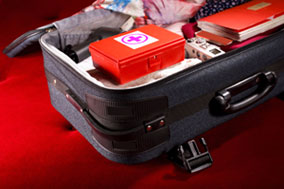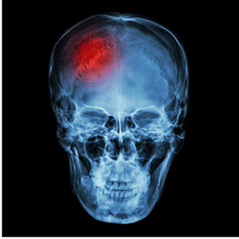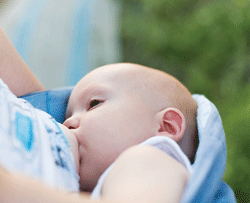 Due to a relatively strong Australian dollar and our well-known sense of adventure, more and more Australians are travelling overseas – often to exotic and remote locations. As the number of Australians travelling overseas increases, so do the number of travellers who become ill – sometimes fatally.
Due to a relatively strong Australian dollar and our well-known sense of adventure, more and more Australians are travelling overseas – often to exotic and remote locations. As the number of Australians travelling overseas increases, so do the number of travellers who become ill – sometimes fatally.
There are many things you can do to ensure you are a healthy traveller, and at Fresh Therapeutics we can assist with these preparations. First of all, visit your general practitioner for a thorough check-up to ensure there are no underlying health issues, which may affect your travels.
Infectious diseases that cause some of the illnesses when travelling are often vaccine-preventable. Vaccinations may be an entry requirement for some countries so check with the embassy or consulate of the countries you are intending to visit, or transit through. In some countries, you may be refused entry or be required to have the vaccination at the border.
It’s never too late to vaccinate. However, some vaccines require a long period to take effect and more than one dose may be needed – so factor this time into your plans. You may also need boosters for childhood vaccines.
It is recommended you seek professional medical advice and have any vaccinations prior to leaving Australia. Doctors at the travel clinic can help to ensure you are aware of the required vaccinations for your trip, and any booster doses of childhood vaccinations.
Before travelling, visit your doctor and pharmacist for a supply of any prescription medicines you may need (checking with the relevant embassy or consulate in Australia to see if there are limitations on what you can take). Take enough medicine to cover the length of your trip. If you need to travel with large quantities of medicine, it’s good practice to divide portions among different pieces of your luggage in case bags go missing.
It is an offence to carry or send Pharmaceutical Benefits Scheme (PBS) medicine overseas unless it’s for your own personal use, or for the use of someone travelling with you. You could be fined $5,000 and spend two years in prison if you break the law. More detailed information is available on the Department of Health website or by calling the PBS information line on
1800 020 613.
The Australian Government’s Smart Traveller website (www.smartraveller.gov.au) recommends carrying a letter from your doctor detailing what the medicine is, how much you’ll be taking with you, and stating that it’s for your own personal use.
Keep all medicine in the original container clearly labelled with your name and dosage instructions to avoid customs problems.
If you have to inject your medicine, it may be preferable to carry your own needles and syringes if permissible in the countries you’re visiting. If you buy needles and syringes overseas, ensure they are sealed and sterile.
It can be difficult to buy medicines and first aid supplies in countries where you do not speak or read the language. Your pharmacist can provide recommendations for over-the-counter medicines and first aid supplies which are useful to take with you. ‘Travellers’ diarrhoea’ is a common, but often preventable, problem for travellers and there are some simple medicines to take with you that can make a great addition to any travel insurance policy.
At Fresh Therapeutics we have a Traveller’s Checklist:
See your Doctor for:
Vaccinations
Antibiotics – travellers diarrhoea*
Short acting sleeping tablets for jet-lag*
Small molecular weight heparin if at high risk of DVT*
Anti-malarials*
Regular prescribed medicines*
* Make sure your have written instructions for use
Ask our Pharmacists about:
First Aid Items
Adhesive tape, e.g. Micropore
Antiseptic wound cleanser, e.g. povidone iodine solution (Betadine)
Sterile dressings, bandages, eg. Postop Flexigrid, Melolin, PIC
Blister strips eg. Scholl, Compeed
Triangular bandage for sling
Scissors, tweezers and safety pins (not in carry-on luggage)
Clinical thermometer
Lubricant eye drops, mist or gel
Paracetamol
Insect bite treatment –
o Antihistamines
o Anti-itch cream/lotion
Other items according to destination and personal needs
Compression stockings and aspirin to prevent DVT
Sunscreen (at least SPF 30+)
Insect repellent eg Bushman’s DEET 30%
Diarrhoea treatment –
o Oral rehydration sachets
o Anti-diarrhoea medicines
Probiotic to prevent traveller’s diarrhoea
Motion sickness tablets
Vomit bags eg Chuckies
Indigestion/dyspepsia tablets
Antichafing balms eg Body Glide
Antifungal powder/cream
Cold and flu medicines
Throat lozenges
Condoms
Adequate supplies of tampons/sanitary pads
Earplugs
Water purifier tablets, e.g. Aquatabs, MicroPur
Spare pair of glasses, contact lens solutions, optical prescription
Medical equipment as required, e.g. asthma nebuliser, insulin pen, blood glucose monitor
Cooler bags to keep refrigerated items whilst in transit eg.medactiv Easybags
Ask our pharmacists about which of these may be best for you and/or which medicines are appropriate for you to take with any of your prescribed medicines.
If you need to purchase medicine at your travel destination, be careful to avoid imitation or counterfeit medicines (including prescription medicines), and always check the strength of a medicine with a doctor. Be aware that packaging and labelling may be similar to those available in Australia, but the strength and active ingredients can vary from country to country.
We also have more detailed information on travel health on the Self Care Fact Card titled Travel Health available at all Fresh Therapeutics Pharmacies.
 Parkinson’s disease is a disorder of the central nervous system (CNS), and it is one of many neurological conditions. Its cause is the loss of nerve cells in the brain due to a variety of reasons including age, hormones, and injury.
Parkinson’s disease is a disorder of the central nervous system (CNS), and it is one of many neurological conditions. Its cause is the loss of nerve cells in the brain due to a variety of reasons including age, hormones, and injury.

 Over time, the daffodil flower has been regarded as a symbol of rebirth – a sign of the new beginnings that come with spring.
Over time, the daffodil flower has been regarded as a symbol of rebirth – a sign of the new beginnings that come with spring. This month you may notice people walking around wearing distinctive bright blue beanies. Those people are joining BANGONABEANIE – a national campaign to raise awareness for Brain Injury Awareness Week, which runs from 17–23 August 2015.
This month you may notice people walking around wearing distinctive bright blue beanies. Those people are joining BANGONABEANIE – a national campaign to raise awareness for Brain Injury Awareness Week, which runs from 17–23 August 2015. The first week of August, 1–7, is World Breastfeeding Week. In Australia, most babies (96%) are initially breastfed and it’s a key contributor to infant health. At this time, let’s consider taking medicines when breastfeeding.
The first week of August, 1–7, is World Breastfeeding Week. In Australia, most babies (96%) are initially breastfed and it’s a key contributor to infant health. At this time, let’s consider taking medicines when breastfeeding. Constipation is one of the most common bowel problems experienced by Australians and this condition can be distressing and debilitating.
Constipation is one of the most common bowel problems experienced by Australians and this condition can be distressing and debilitating. Due to a relatively strong Australian dollar and our well-known sense of adventure, more and more Australians are travelling overseas – often to exotic and remote locations. As the number of Australians travelling overseas increases, so do the number of travellers who become ill – sometimes fatally.
Due to a relatively strong Australian dollar and our well-known sense of adventure, more and more Australians are travelling overseas – often to exotic and remote locations. As the number of Australians travelling overseas increases, so do the number of travellers who become ill – sometimes fatally.